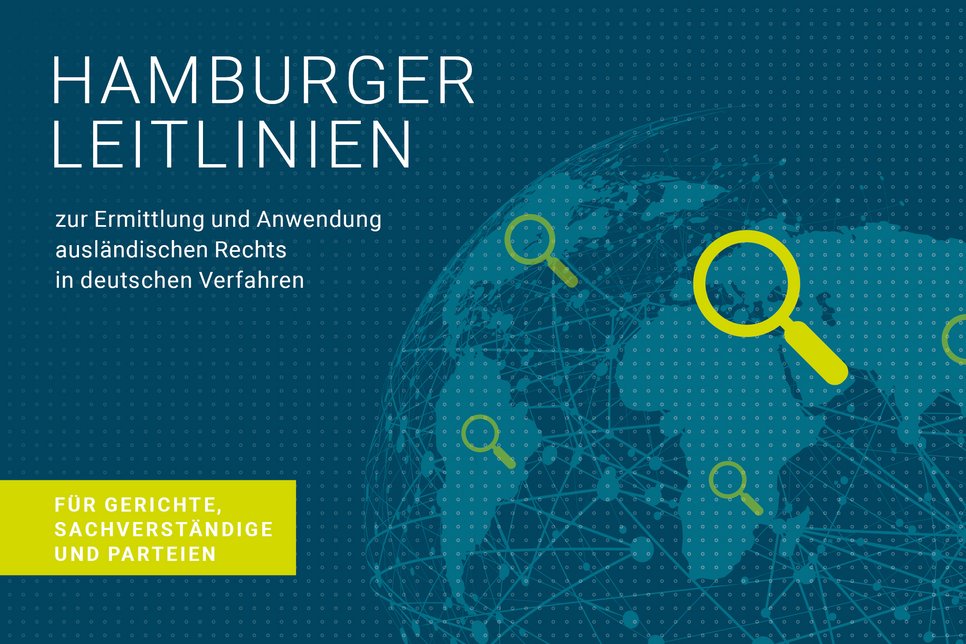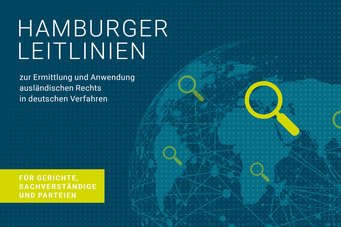“Hamburg Guidelines” Offer Orientation for Practitioners Applying Foreign Law
The Max Planck Institute for Comparative and International Private Law has published guidelines for ascertaining and applying foreign law in German litigation (in German: Hamburger Leitlinien für die Ermittlung und Anwendung ausländischen Rechts in deutschen Verfahren – the “Hamburg Guidelines”). The intent behind the Hamburg Guidelines is to facilitate the transparent, efficient, and legally sound handling of foreign law in German litigation. The guidelines were finalized at the Institute by Ralf Michaels, director at the Institute, and by Jan Peter Schmidt, head of the Centre for the Application of Foreign Law. Their completion follows intensive consultations with judges, attorneys, and other practitioners as well as with legal scholars both at the Institute and elsewhere. Schmidt and Michaels will present the guidelines to the general public at a ceremony at the Oberlandesgericht (Higher Regional Court) of Hamburg on 9 October 2023.

German courts are often called upon to apply foreign law in transnational litigation. The first step, however, before that can occur, is to ascertain what the foreign law is. Courts have various means at their disposal by which to do so, including by commissioning expert opinions, normally from authors in Germany who possess expertise on foreign legal systems. Along with several university-based legal institutes, the Max Planck Institute for Comparative and International Private Law is among those from whom German courts seek expert opinions on one of the approximately 200 legal systems around the world.
While the practice of obtaining expert opinions has proven effective overall, it still introduces issues, both legal and practical, that are challenging for everyone involved. Moreover, both courts and experts alike are experiencing greater workloads due to an increasing number of cases that touch on foreign law.
This is where the Hamburg Guidelines come in. They are intended to provide courts, legal experts, litigants and legal counsel with a sense of direction. The Guidelines are grounded in the practical experience of everyone involved. Most strongly represented is the experience of courts and of the institutes that regularly produce expert opinions. The Guidelines also reflect the relevant statutory requirements and case law, particularly that of the Federal Court of Justice.
Among the Institute’s contributions to this project are its nearly 100 years of experience in providing expert opinions, which is also one of the ways the Institute puts its fundamental international and comparative legal research in service of the general public. The publication of the Guidelines is at the same time a milestone in a long-term research project in which Ralf Michaels and Jan Peter Schmidt have been examining practices around expert opinions on foreign law from a scholarly perspective.
The Guidelines have been made freely available in booklet form and can be accessed at www.hhleitlinien.de.
Image: © Max Planck Institute for Comparative and International Private Law / Johanna Detering
